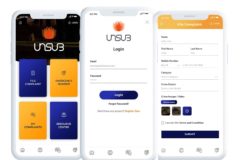Parse has gone the way of the Dodo.
Facebook acqui-hired the MBaaS (mobile backend as a service) company in April 2013, and last night, Parse sent an email to all its users that it will be folding up the service between now and January 28, 2017.
So, now that you have to migrate, where do you go?
1. Build your own Backend
Obviously the most labour intensive option. Obviously the most customizable option. If you can afford it, financially, and in developer hours, it’s best to build a backend solution tailored to your needs.
At least you can be sure no one is going to wake up one day, and shut it down.
2. Firebase
Firebase implements a model-observer scheme, so it is a better choice than Parse, for games and other applications that are highly interactive. Changes to the data on the server are automatically pushed out to all devices that are registered as listeners. A developer-only poll on Stackshare.io, rated Firebase higher than Parse, so it’s definitely worth a look.
Firebase operates a freemium model, with prices ranging from $0 for the barebones configuration, to $1500 per month for the Inferno plan: the entire range of their services.
3. Applicasa
Applicasa is another MBaaS company that game developers may want to look into. They consider themselves a complete package – a “one-stop-shop“. They have a unique business model in that they do not charge on the number of API calls, like other MBaaS companies do. They charge per number of users. ADAU – average daily active users, they call it, over a period of one month.
According to their website, they operate “adaptive pricing” (the pricing model scales in proportion with the growth of your user base). Basically, Pay-As-You-Go.
4. Appcelerator
Formerly called Cocoafish, ACS – Appcelerator Cloud Services appears to be the most feature-rich out of all the MBaaS companies. They offer you a custom object you can save on the server, key-value objects, push notifications, geolocation as well as a plethora of easy, out-of-the-box APIs. Oh, you can export your data, too.
They do not have a free plan. Their lowest offering is the Indie plan, at $39 per month, to the Team plan, at $259 per seat per month. Their Enterprise plan is looks like a bespoke solution, as they request you to call them to request a quote.
5. Kumulos
Online reports say it’s excellent for beginners, and has an intuitive interface for creating web services. This interface helps apps communicate with the Kumulos service to perform basic CRUD (create, read, update, delete) operations on your database. I see this being useful when you need to move data from existing servers to the Kumulos platform. Important, when you’re facing system maintenance, as it helps migrate data quickly and easily.
Kumulos is free until you launch your project, at which point it costs $10 per app, per month.
6. Kinvey
Kinvey lets you have 200 active users per month. Free of charge. However, if you end up breaking that threshold, you will be switched to a paid plan. As a company, their model customer is an enterprise-scale one. This becomes clear, the moment you take a look at their pricing model.
They price annually, with the cheaper, multi-tenant arrangement starting at $24k/yr – $60k, and the bespoke ‘Enterprise’ arrangement, for much larger clients.
That’s not nearly all of them though. There are many others, like AWS Cognito, RapidAPI, Backendless, sencha.io, Deployd, CloudMine, CloudBoost.io, etc.
At the end of the day, choosing the right MBaaS depends a lot on the nature (and scope) of your projects.
Photo Credit: Christian Schnettelker via Compfight cc





















